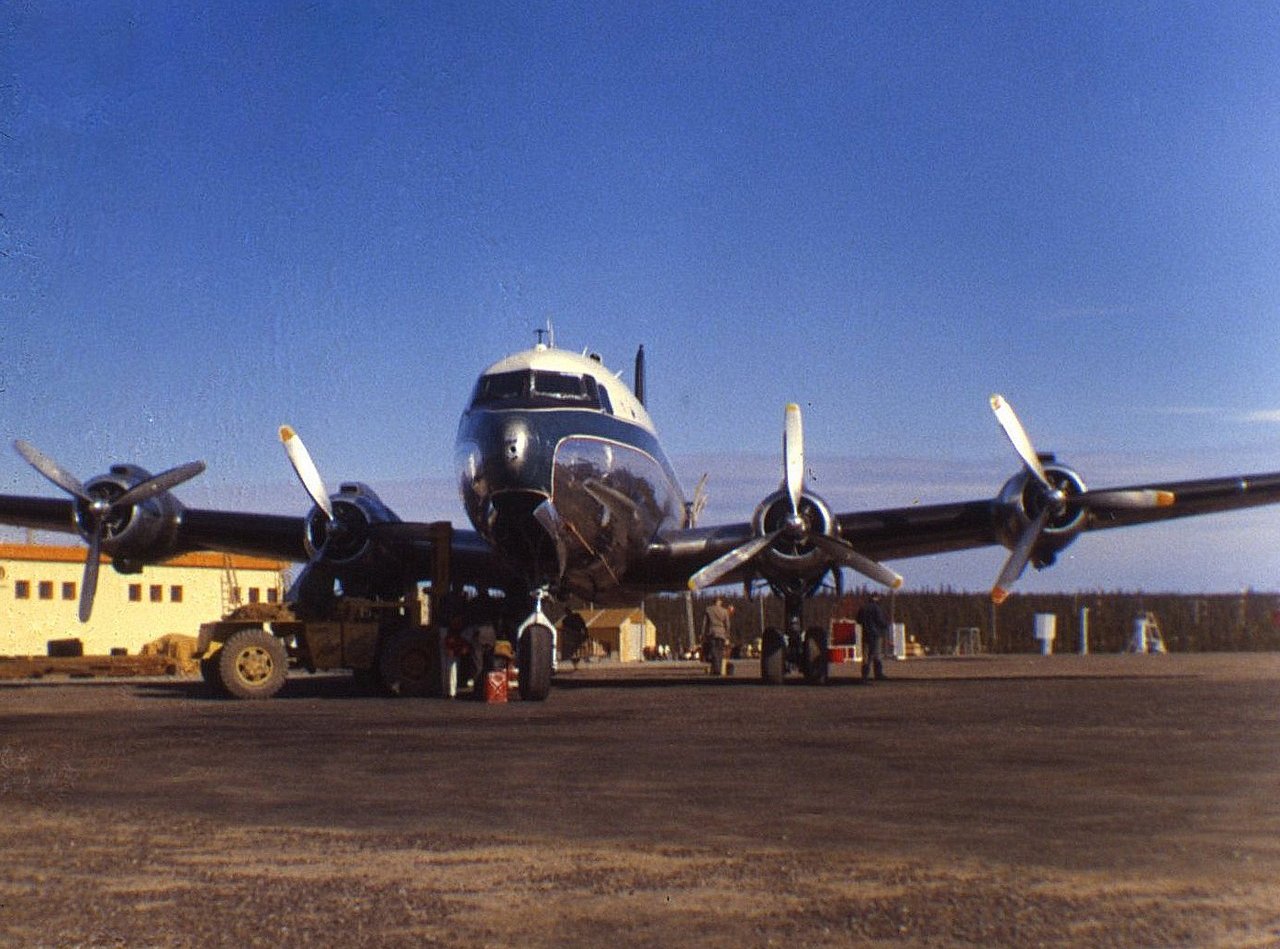

DC-4
DC-4 CF-XXX THURSDAY 24 MAY 1962 . OWNED BY ELDORADO MINING & REFINING COMPANY AT INUVIK,NWT
Used to ferry crew from CYXD/Edmonton Industrial airport to CYEV/Inuvik airport,NWT (CYXD closed 2014). I was one of men enroute to CYUB/Tuktoyaktuk to work on Eldordo’s subsidiary NTCL/Northern Transportation Company Limited’ ships (2 tankers, 3 LSTs "Landing Ship Tanks" (all ex WW II) to do the annual summer (Arctic open water) resupply to Canada’s western Arctic DEW line sites(Distant Early Warning Line). I was a Crews' Mess Steward on LST 692. The ships & a floating Dry Dock over wintered yearly in the ice of Tuktoyaktuk Inlet.
(DC-4 couldn’t land on the gravel runway at Tuktoyaktuk (weight restriction due underlying perma-frost)!
" The company was an outgrowth of the competition in the Yukon between the new Northern Trading Company and the entrenched Hudson's Bay Company.[6] Colonel J.K. Cornwell, one of the principals of the Northern Trading Company,[6] ran his first steamer, The Midnight Sun, on the Lesser Slave Lake River in 1904.[7] The company acted as a kind of subsidiary of the Northern Trading Company until its formal creation in 1930 as Northern Waterways Limited, but its name was changed in 1934 to the Northern Transportation Company Limited.[8] It was one of the first haulers on the Mackenzie River after the Hudson's Bay Company,[9] starting up just after the Yukon gold rush. In 1936, it was taken over by the Eldorado Gold Mines Limited[9] and Arthur Berrywas appointed manager in Edmonton. In 1944, it became a Crown corporation when its parent, then known as Eldorado Mining and Refining, was nationalized by the government of Canada.[8]
The company has been involved in North Slope operations since 1963.[3] In 1975, then under the jurisdiction of the Coast Guard Northern Division of Transport Canada, it became the sole marine shipper in the Canadian Arctic operating of out of Churchill, Manitoba.[8]In 1959, it moved its operational headquarters to the town of Hay River.[10] In 1985 it was purchased by the Inuvialuit Development Corporation and Nunasi Corporation, two native-owned corporations.[1][8] " (free Wikipedia)
